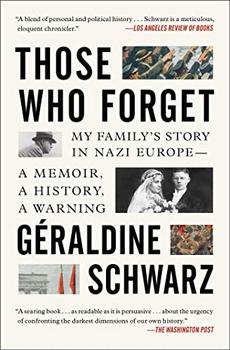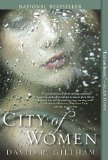Summary | Excerpt | Reviews | Beyond the book | Read-Alikes | Genres & Themes | Author Bio

Children's Lives Under the Nazis
by Nicholas StargardtDrawing on an untouched wealth of original material – school assignments; juvenile diaries; letters from evacuation camps, reformatories and asylums; letters to fathers at the front lines; even accounts of children's games — Nicholas Stargardt breaks stereotypes of victimhood and trauma to give us the gripping individual stories of the generation Hitler made.
Already hailed as "magnificent . . . some of the best historical writing about
the aftermath of the war I have ever read . . . stunning" (The Guardian),
Witnesses of War breaks new ground in its exploration of the lives and
the fate of children of all nationalities under the Nazi regime.
Children were at the center of Nazi ideology; now we have their history of those
years. Their stories open a world we have never seen before. War came home to
children as a set of events without precedent, spectacular and terrifying by
turns. As the Nazis overran Europe, children were saved or damned according to
their race. Precious few remained unscathed during the war, and most suffered a
moment that overturned their lives. For some, it was the evacuation to become
junior colonists in the East; for others, it was the onset of heavy bombing, the
separation of families or learning to keep their parents alive by smuggling
food, creating black markets and devising their own escape networks. Some herded
women waiting to be shot. Girls manned flak batteries; boys confronted Soviet
tanks.
Drawing on an untouched wealth of original material – school assignments;
juvenile diaries; letters from evacuation camps, reformatories and asylums;
letters to fathers at the front lines; even accounts of children's games —
Nicholas Stargardt breaks stereotypes of victimhood and trauma to give us the
gripping individual stories of the generation Hitler made.
The positive note from this book is elegantly summed up by Ruth Kluger, writing in The Washington Post, who says "Reading about these years, one can only marvel that Europe recovered so thoroughly. The war children who survived to see a more prosperous world did not become a social burden (as many seem to have feared at the time) but became productive and responsible citizens. Their wounds were real enough, but they coped -- and cope -- with them privately, and with dignity. If there is any hopeful message to be gotten from this harrowing book, it is the wonder of human resilience."
Perhaps this can give us hope for the countless children affected by wars today, including the estimated 300,000 child soldiers fighting in more than 85 countries (according to Amnesty International, 2006)...continued
Full Review
(638 words)
This review is available to non-members for a limited time. For full access,
become a member today.
(Reviewed by BookBrowse Review Team).
About the author: Nicholas Stargardt is the son of a German-Jewish father and Australian mother. Born in Melbourne, he has lived in Australia, Japan, England and Germany. He studied at King's College, Cambridge, and is a fellow of Magdalen College, Oxford, where he teaches modern European history. Witnesses of War is his second book; his first, The German Idea of Militarism: Radical and Socialist Critics, 1866-1914 was published in 1994. He has written widely on the history of modern Germany, political and social thought and the Holocaust. He has two sons and is married to the historian Lyndal Roper.

If you liked Witnesses At War, try these:

by Géraldine Schwarz
Published 2022
Those Who Forget, published to international awards and acclaim, is journalist Géraldine Schwarz's riveting account of her German and French grandparents' lives during World War II, an in-depth history of Europe's post-war reckoning with fascism, and an urgent appeal to remember as a defense against today's rise of far-right nationalism.

by David R. Gillham
Published 2013
It is 1943 - the height of the Second World War - and Berlin has essentially become a city of women. In this page-turning novel, David Gillham explores what happens to ordinary people thrust into extraordinary times, and how the choices they make can be the difference between life and death.